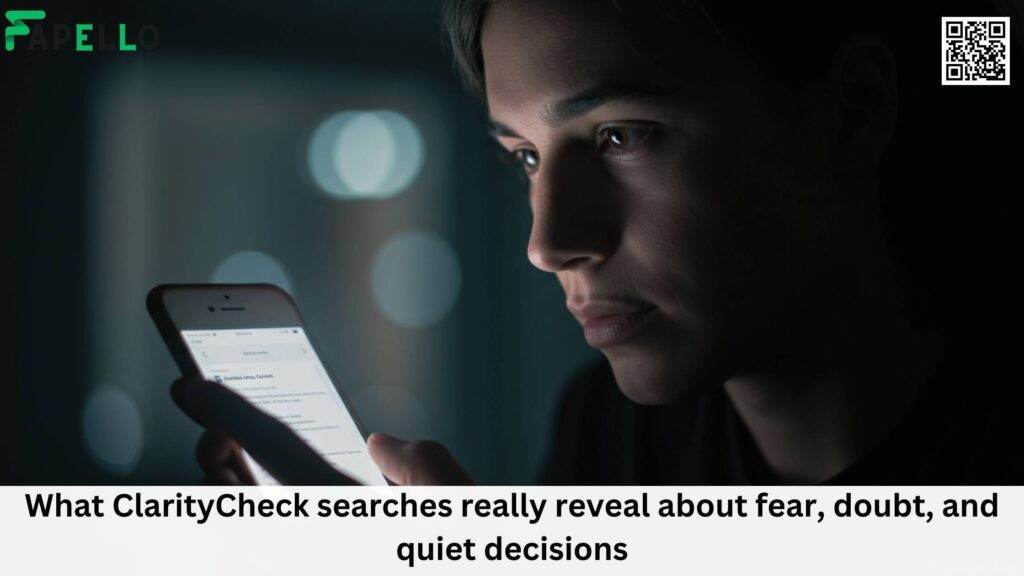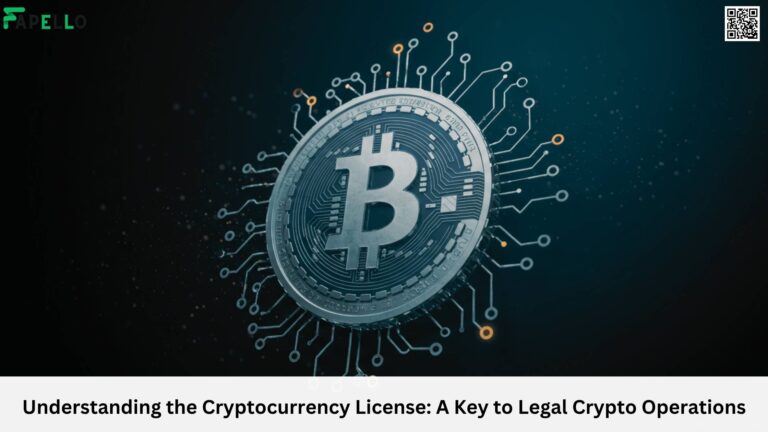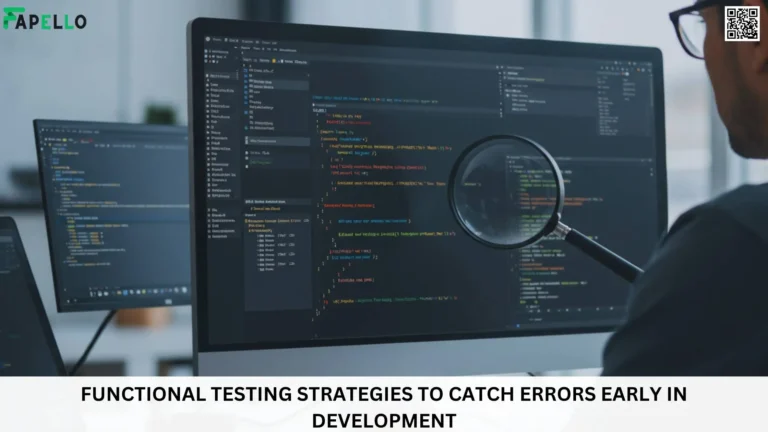As more of our lives unfold behind phone screens and in semi-anonymous exchanges, the urge to verify grows stronger. Tools like ClarityCheck.com are no longer niche – they’re becoming part of everyday judgment calls. Whether it’s a threatening robocall, a suspicious neighbor, or a partner whose story doesn’t quite add up, users are turning to ClarityCheck to find signals where none were offered. And what they do with those signals often reshapes everything that follows.

Spoofed numbers and robot voices: the paranoia spiral of modern phone calls
One Reddit user posted under the title “Getting repeated calls from a spoofed number. thinking about trying claritycheck website.” They described a wave of daily calls that appeared local – but weren’t. The numbers rotated. Blocking didn’t help. One call used a robotic voice to announce that their bank account was “compromised.” Out of frustration, they traced the number using ClarityCheck.com, hoping for something – anything – that could help. One call used a robotic voice to announce that their bank account was “compromised.” Out of frustration, they traced the number using ClarityCheck.com, hoping for something – anything – that could help.
“I just wanna know who tf is behind these calls,” they wrote. “Not for revenge or anything lol, just want to protect myself.” That balance – between self-preservation and clarity – is exactly where ClarityCheck lives. According to multiple ClarityCheck reviews, many users arrive at the site not with legal intentions or high-stakes investigations, but with a growing sense that something doesn’t feel right. A pattern, a voice, a message that won’t leave their mind.
What made this post resonate wasn’t the fear – it was the exhaustion. The user wasn’t trying to escalate. They were trying to regain control, just enough to stop feeling helpless when their phone lit up. That’s a pattern echoed in many other accounts.
A missing dog, a new neighbor, and a sickening online trail
In a post titled “my dog went missing after my new neighbor moved in and i found out after claritycheck that he has a history of stealing pets. what should i do? i have no proof,” a user described the gut-wrenching disappearance of their dog – a rare breed, well-loved and never prone to running off. “We have a fenced yard. He never leaves my side,” the post read. But the dog vanished two days after a new neighbor moved in. “Always watching. Never said hi.”
At first, the poster tried not to jump to conclusions. But something about the man’s presence lingered. They ran his number through ClarityCheck – and what surfaced sent a jolt: past accusations of pet theft in another city, screenshots posted online, allegations of selling animals from his garage.
They had no physical proof. No footage. Just the absence of their dog and a digital thread that seemed too specific to ignore. “I can’t go to the police with just a hunch,” they admitted. “But I also can’t sit here wondering if he took my dog.”
ClarityCheck, in this case, became something heavier than a verification tool. It became part of grief. Of blame. Of helplessness and rage. The platform didn’t close the case – but it changed the emotional architecture of the story. As many ClarityCheck reviews note, it’s not always about certainty. Sometimes it’s about having a place to aim the question: what happened here?
Trust, betrayal, and the search that unravels everything
Another post, written in a rush of emotion, carried the title “she told me she left her ex but i found out that she still lives with him after a quick claritycheck. do i confront her or walk away?“ The user wrote in a state of near-collapse. They’d been dating someone for a couple of months. Everything seemed sincere – until a strange text popped up on her phone while she was in the shower. A message from “M.” asking when she’d be home. “She told me she left her ex,” the user wrote. “But I found out that she still lives with him after a quick ClarityCheck.”
They ran a background trace and found that not only had she never moved out – she was still living with a man she had described as her ex. “Not even ex, maybe,” they added, realizing the extent of the deception.
“I feel like my chest is going to cave in,” the post continued. The person wasn’t looking for confrontation. They were looking for a way to stay upright after the floor had dropped. And in that moment, ClarityCheck was the pivot – an action that made the invisible, visible.
This post reflects one of the most emotionally common ClarityCheck use cases: quiet fact-checking after a series of half-truths. Not because the user wanted to hurt someone. But because they needed to know if they were the one being misled. The lookup didn’t provide closure, but it provided something just as essential: context.
The slow normalization of private investigations
What these stories reveal is a new kind of internet behavior. People aren’t just googling anymore. They’re fact-checking in real-time, mid-conversation, mid-crisis. And they’re doing it alone. ClarityCheck.com, according to users, isn’t a detective service. It’s a mirror for doubt. A place to check whether your instinct has backup.
This normalization of light investigation is deeply tied to how trust now works. We don’t expect full transparency. But when small things don’t align – vibes, gaps in stories, unexplained calls – many people now move toward platforms like ClarityCheck, not to accuse, but to affirm their right to ask.
ClarityCheck reviews often mention that the site isn’t flashy, nor does it oversell. That’s part of its power. It’s not about delivering hard truths. It’s about making a whisper of suspicion loud enough to hear clearly.
When doubt isn’t enough: the limits of online verification
Behind each lookup is a judgment call – but also a boundary. What can a phone number really tell you? How much trust can be placed in scattered reports or past accusations? These are uncomfortable questions, especially when platforms like ClarityCheck.com are used in moments of stress, fear, or emotional vulnerability.
The truth is, no search result – however detailed – can replace human investigation or due process. And while users may feel empowered after finding confirming information, they often remain in limbo. You might learn that someone has a shady online trail, but that doesn’t prove what they did to you. You might see a history, but not the context. And you’re still left with a choice: act or wait. Assume the worst or keep watching.
This is the emotional paradox of modern verification: we want to know, but we rarely get closure. We’re informed, but still uncertain. That doesn’t make tools like ClarityCheck any less useful – but it does mean we need to recognize their limits. It’s not truth we’re always getting. Sometimes, it’s just enough doubt to stay alert.
How people navigate the aftermath of unsettling discoveries
What happens after you learn something you can’t unsee? That’s the question many ClarityCheck users face once the initial adrenaline of a search result wears off. A confirmed suspicion doesn’t come with instructions. And unlike dramatic stories in films, real life doesn’t always allow for clean resolutions.
Some people try to confront what they find – asking hard questions, requesting clarification, or even cutting ties altogether. Others retreat, taking time to assess whether they’re ready to act. A handful do nothing at all, not out of denial, but because they weigh the fallout and find no clear benefit in stirring up more uncertainty.
There’s no universally right response. But there is a pattern of solitude. ClarityCheck searches are usually done in private. They happen at night, in moments of doubt, in tabs that are quickly closed if someone enters the room. That privacy is both empowering and isolating. And when the results bring up more questions than answers, users are left to sit with a new version of reality that no one else can fully understand.
These moments are not failures of the tool – they’re reminders of how much emotional labor is involved in knowing something you didn’t expect to find. Behind every “match” is someone who now has to decide: what does this change, and what do I want to do about it?
What comes after clarity check
Of course, knowing more can complicate things. Learning that a caller is spoofed doesn’t stop the calls. Finding a link between a neighbor and an accusation doesn’t bring a dog back. Uncovering a lie in a relationship doesn’t erase the intimacy that came before it. But it reorients the user.
That’s why tools like ClarityCheck aren’t just databases. They’re narrative forks. They let people choose a path with their eyes open. And in a world where so much is left unsaid or deliberately obscured, that’s often more than enough.
More users now approach ClarityCheck.com not with high expectations, but with grounded ones. Not for justice – but for confirmation. Not to act impulsively – but to stop feeling powerless. That’s a kind of clarity too.
Source: Fapello






